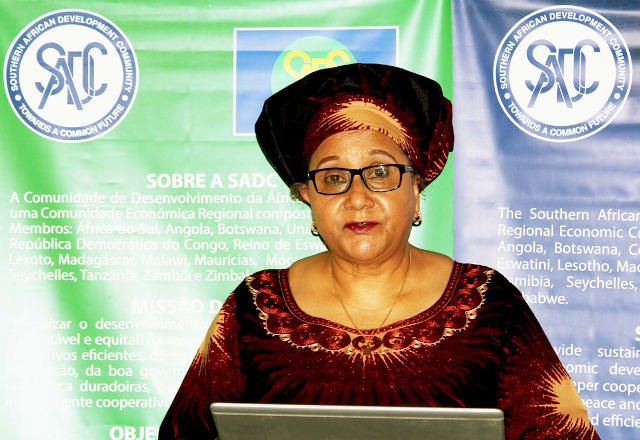“It is commendable that as a Region, SADC has embraced the resource nexus approach, and we are rolling out a Water-Energy-Food Security Nexus Programme. We are indeed on the right track, and if we all commit to this course, we will definitely reap greater benefits in the near future” said Her Excellency Dr. Stergomena Lawrence Tax, SADC Executive Secretary.
The overall objective of the WEF-Nexus project is to support the transformation required to meet increasing water, energy, and food security demand in a context of climate change in the SADC Region, through the development of a truly integrated nexus approach.
Upon operationalization, the approved framework will provide guidance for:
- Coordinating the three sectors (water, energy, and food) policy and decision-making level (i.e., Ministerial Level);
- Coordinating the three sectors at the regional technical level;
- Coordinating the Units responsible for the WEF sectors within the SADC Secretariat;
- Coordinating with regional implementing entities and other partners; and
- Strengthening regional multi-stakeholder platforms
The Nexus approach highlights the interdependencies between achieving water, energy, and food security for human well-being while ensuring ecologically sustainable use of globally essential resources. It bridges the traditional divides between each of the sectors and takes a long-term perspective that is relevant to all major international processes aimed at sustainable development, including the achievement of the Sustainable Development Goals (SDGs). SDG 6 (water), 7 (energy), and 2 (food security) are not only closely connected to each other but also eminently important for the Nexus approach. The WEF-Nexus is, therefore, a central pillar of the 2030 Agenda, as an enabler of sustainable development in its three dimensions.

Her Excellency Dr. Stergomena Lawrence Tax, SADC Executive Secretary
In her introductory remarks, Her Excellency Dr. Stergomena Lawrence Tax congratulated the development of the Nexus Framework, stating that “Traditionally, the design of water and energy systems has been done independently or considered simplified interdependencies between the systems. This approach misses valuable synergies between the them and does not consider in detail the sharing and distribution of benefits between the sectors, and/or among Member States.”
H.E. Dr. Tax further stressed the importance of the development in the water, energy, and food sectors, as they greatly contribute towards regional integration, including in industrialisation, environmental protection, and ultimately to peace and stability, socio-economic development, and reduction of poverty in our Region.
In his keynote address, the Minister of Mineral Resources and Energy of the Republic of Mozambique, and Chairperson of the meeting, Honourable Ernesto Max Elias Tonela, emphasized the need for SADC to ensure that efforts are made in support of the regional goals to create an enabling environment to attain consistent supply of energy and water which will provide sustainable development, guarantee industrialisation, reduce poverty, achieve regional integration, stimulate economic growth and improve the quality of life of the peoples of the SADC Region.
Honourable Tonela further added that the outbreak of the COVID-19 pandemic in March 2020 continues to aggressively present negative effects on the socio-economic development of the region and has placed a heavy burden on the development of these sectors.
The meeting held on the 30th October 2020 also considered a report on the impact of the COVID-19 pandemic and how it has affected investments in the Energy and Water sectors in the Region, and proposed mitigation measures that could be applied at regional and national level. The Ministers reviewed strategic instruments for guiding adherence to COVID-19 and similar pandemics in the energy sector at regional and national level and called for continuous assessment and monitoring of the impacts.
The meeting was attended by SADC Ministers or their representatives from Angola, Botswana, Democratic Republic of Congo, Lesotho, Malawi, Madagascar, Mauritius, Mozambique, Namibia, Seychelles, South Africa, Zambia and Zimbabwe. The meeting was also attended by representatives from International Cooperating Partners, and Implementing Agencies, and was preceded by a two-day virtual meeting of Senior Officials responsible for the two sectors from 26th to27th October 2020.
For the full SADC press release of this event, click here.
For Her Excellency Dr. Stergomena Lawrence Tax’s full speech, click here.
For Honourable Ernesto Max Elias Tonela’s full speech, click here.
